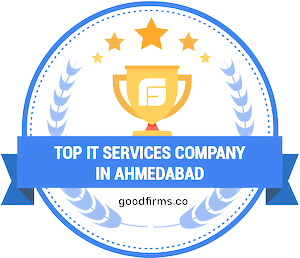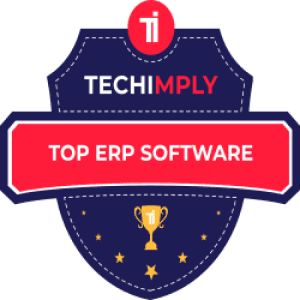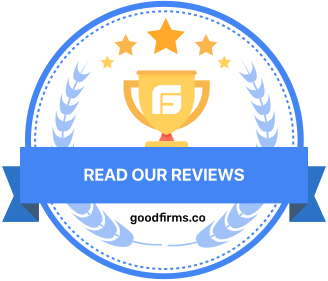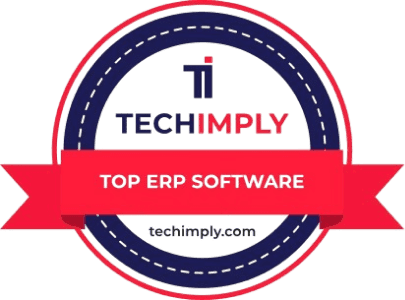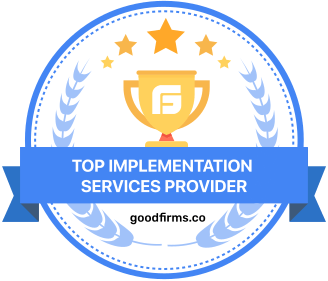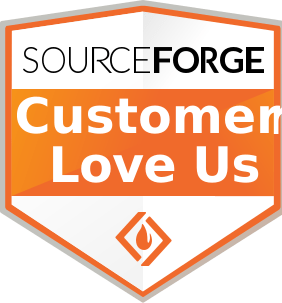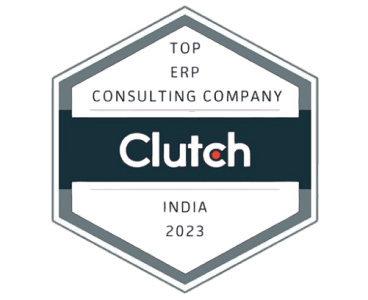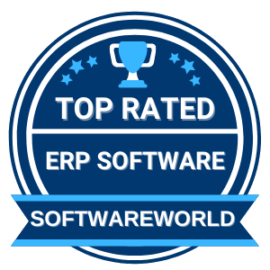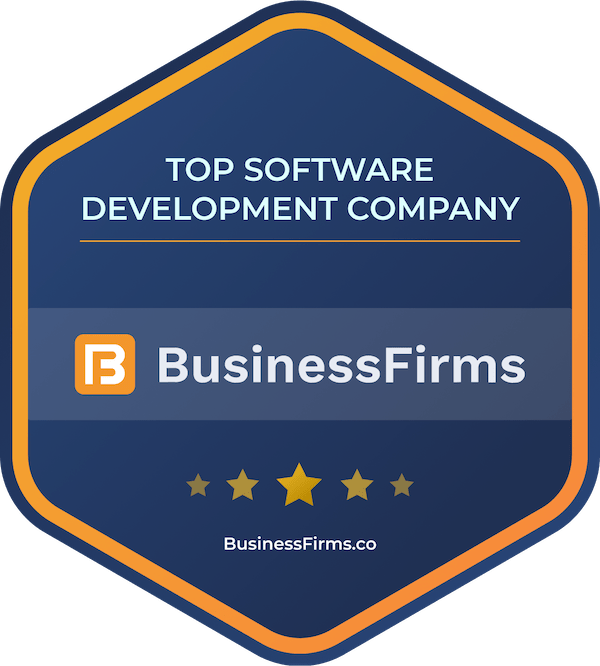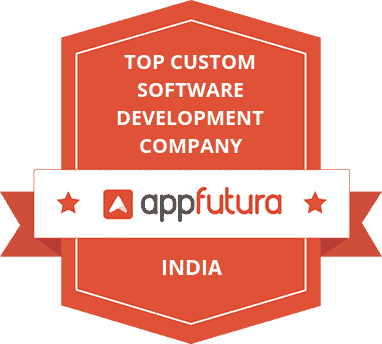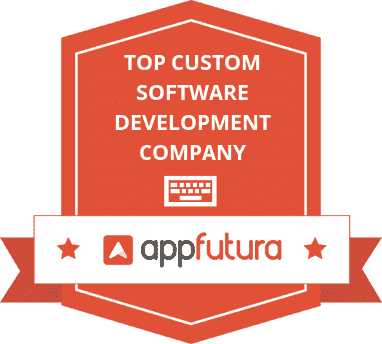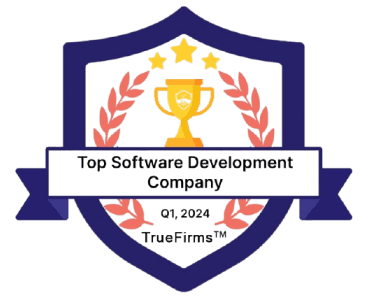Introduction
Small and midsized enterprises (SMEs) in the manufacturing and other sectors face limited resources and changing market trends. In today’s competitive business scenarios, these SMEs face tremendous pressure to optimize operations to reduce costs and increase productivity. Traditional methods like spreadsheets and manual monitoring seem insufficient to address these challenges. Here, production management software comes into the picture.
As a robust business management tool, production ERP software can improve planning and scheduling to streamline processes. This blog delves into the top features and key benefits of production planning software. We will also explore some useful tips to ensure the effective implementation of production tracking software. Let’s understand the scope and importance of production management software for SMEs.
Overview and Importance of Production Management Software for SMEs
Production management solution is an advanced tool that consists of features necessary to organize, plan, and control manufacturing processes of SMEs. It can streamline the flow of materials, optimize production schedules, and manage available resources to increase productivity over the period. Manufacturers can improve their planning based on actionable insights and accurate forecasts.
Talking about the importance of production software, it brings automation to daily tasks and increases efficiency. Such efficient processes can save operational costs significantly and enhance productivity. Other benefits of production planning software include higher scalability, better collaboration, and increased product quality useful for driving growth. Let’s understand the core feature of this software that can bring transformational changes in SMEs.
Features You Should Look for in Right Production ERP
When selecting the right production ERP system, it is essential to consider major features. Some of these features include.
1. Bill of Materials (BOM) Management
It is a detailed list of all the components and materials necessary to manufacture a product. The BOM management feature is useful for managing supply chains and inventories. It can handle different BOM types like engineering BOM and manufacturing BOM.
2. Production Planning and Scheduling
It helps SMEs create production plans, scheduling processes, and allocate available resources effectively. This feature is beneficial for managing material availability, production priorities, and machine capacity. It may have some advanced features, including finite capacity scheduling.
3. Inventory Management
This is one of the most important features of the production ERP software. It is necessary for tracking raw materials, finished goods, and even work-in-progress (WIP). It can provide SMEs with real-time visibility into inventory levels and automate rendering processes.
4. Shop Floor Control
It manages and monitors production activities and the entire line on the shop floor. This feature’s scope can extend to work order management, job tracking, machine monitoring, and labor tracking. It gives real-time insights from the shop floor to make accurate decisions.
5. Material Requirements Planning (MRP)
It is a planning feature that calculates the materials required to fulfill product orders. The production ERP uses this feature to determine when and how much of each ingredient is necessary based on production schedules and BOMs.
6. Routing Management
It defines the sequence of operational processes necessary to make a product. The production software can have this advanced feature for creating and managing routings. It is also useful for specifying the machines, tools, and supporting alternative routings.
7. Quality Control Management
This crucial feature can ensure that your products meet the prevalent quality standards. It enables manufacturers to inspect quality, testing, and tracking defects. It also supports quality control processes of the entire production cycle.
8. Capacity Planning
It helps determine the production capacity to meet ever-changing demands. It covers machine capacity, labor availability, and production schedules to plan effectively. Other major benefits of this feature are the identification of potential bottlenecks and supporting resource utilization.
9. Supply Chain Management
This feature of manufacturing software for small businesses offers benefits like supplier management, more visibility, and purchase order processing. Managing supply chains is imperative for the growth of SMEs, and this feature can help them achieve this goal.
10. Cost Management
SME owners or manufacturers can monitor production costs, including material costs, overheads, and labor costs, using this feature. Accurate cost data analysis can indicate some areas for cost reduction.
Apart from these features, the most suitable production management software should have the necessary scalability and integration capabilities. These features and functionality can take SMEs to a new level by offering multiple benefits.
Key Benefits of Production Software for SMEs
A robust Production ERP Software offers numerous benefits to SMEs. It can be a game-changer for the company’s growth and expanded operations. Let’s go through some of these benefits.
1. Improved Efficiency and Productivity
As this solution automates routine tasks, employees remain free to focus on more strategic and creative aspects. Moreover, production software can streamline workflows and eliminate bottlenecks to ensure a seamless operational flow.
2. Enhanced Planning and Scheduling
It provides manufacturers with powerful tools for production planning and scheduling. Accurate forecasting tools enable SMEs to plan their production and manage inventory levels effectively. It makes it possible to manage resource availability and production priorities.
3. Reduced Operational Costs and Time
This is a critical advantage of a production ERP solution. It optimizes inventory levels to eliminate the chances of overstocking and stockouts. Furthermore, it contributes in minimizing waste and maximizing resource utilization. It results in great savings of time and money.
4. Increased Customer Experience
SMEs can increase customer satisfaction by improving production planning, meeting deadlines, and offering high-quality products. Some production software includes features to enhance customer communication by providing real-time updates on order status.
5. Better Inventory and Quality Management
Effective inventory management and quality control are other core benefits of production software. A Warehouse Management System offers real-time visibility into inventory levels, enabling SMEs to monitor the movement of material and finished goods.
Apart from this, manufacturing software for small businesses can help them establish and maintain quality standards consistently. SMEs can minimize defects and the need for rework by monitoring processes and detecting issues early.
Simply put, a production management software with the necessary features and seamless functionality can bring revolutionary changes for driving the growth of SMEs. However, it is fair to mention that effective implementation of a production management system is a must to leverage these benefits.
Useful Tips for Effective Implementation of Production ERP Software
Effective implementation of a production tracking software requires careful planning and proper execution, just like other critical projects. Here are some beneficial tips for a successful implementation of a production management ERP solution.
1. Define Your Objectives Clearly
SMEs must define what they want to achieve using an ERP solution. It is the first step to identify business needs, objectives, and pain points. This blueprint of objectives and issues will help them choose the right software.
2. Select the Right ERP System
Inventory Management Software is useful for handling stocks, and production tracking software can monitor the production cycle. Similarly, SMEs need to select the most suitable ERP system based on their objectives and pain points.
3. Make a Team from Departments
A dedicated project team consisting of experts from all relevant departments, including production, operations, inventory, finance, and IT, can make a proper plan. You can keep an experienced project manager as a Team Lead for this internal team.
4. Develop a Comprehensive Plan
A detailed implementation plan, including timeline, budget, data migration, testing, training, and other aspects, is essential before initiating the process. You can break down the entire project into manageable phases with clear milestones and deliverables.
5. Make a Data Migration Strategy
A production ERP solution needs corporate data from existing systems. You need to cleanse and validate it to ensure high accuracy and consistency. A well-defined data migration strategy covers all these aspects, ensuring a swift and secure migration process.
6. Opt for Testing and Training
After completing customization, SMEs need to test the production ERP solution thoroughly. Unit testing, system testing, integration testing, and UAT (User Acceptance Testing) are important aspects to meet your business needs effectively. You should also arrange training sessions.
7. Establish Change Management
Proper implementation of a change management strategy can address the impact of the new production management system. You can communicate the benefits of the system to your employees and address their concerns with ongoing support.
8. Get Post-Implementation Support
Continuous ongoing support and improvement are necessary after implementing the production software. It can ensure flawless performance and good user experiences for a long time while optimizing production processes. Your ERP vendor can offer this support and maintenance.
A reputed and reliable ERP solution provider can assist you in getting the right ERP system and making an effective data migration strategy. This ERP partner also gives proper training and offers excellent support with maintenance.
How Matiyas Solution Helps SMEs Leverage the Benefits of Production ERP
Matiyas Solution is a leading ERP software provider. As an official ERPNext partner, Matiyas Solution can offer advanced Manufacturing ERP software and other useful solutions for small and mid-sized businesses. An in-house team of experienced business analysts and ERP experts can assist SMEs in getting the most suitable solution to drive growth.
Since its inception, Matiyas Solutions has set the benchmark in implementing feature-rich ERP solutions and offering excellent maintenance services. We, at Matiyas Solutions, focus on business models and market trends to suggest and implement production software and other useful business management solutions cost-effectively.
Concluding Lines
Production management software can offer numerous benefits to SMEs, including increased efficiency and reduced operational costs. Its key features, including inventory management, supply chain management, and quality control management, can cover all the departments of SMEs. However, it is imperative to select the right production ERP software provider to leverage these benefits with regular maintenance and ongoing support at every stage.

 "I am quite happy with the ERP solution provided by Matiyas. Before we implemented their system, our organization was struggling with inefficient processes and fragmented data. Their customized ERP solution not only streamlined our workflows but also provided real-time insights into our operations. The customer support from Matiya's Team has been exceptional throughout the journey."
"I am quite happy with the ERP solution provided by Matiyas. Before we implemented their system, our organization was struggling with inefficient processes and fragmented data. Their customized ERP solution not only streamlined our workflows but also provided real-time insights into our operations. The customer support from Matiya's Team has been exceptional throughout the journey."
 "Matiyas offered us a functionally strong and automated solution to address the end-to-end needs of our business operation. This solutions will be able to scale and grow our business and it will surely reduce manual interventions."
"Matiyas offered us a functionally strong and automated solution to address the end-to-end needs of our business operation. This solutions will be able to scale and grow our business and it will surely reduce manual interventions."
 "Matiyas offered us a functionally strong and automated solution to address the end-to-end needs of our business operation. This solutions will be able to scale and grow our business and it will surely reduce manual interventions."
"Matiyas offered us a functionally strong and automated solution to address the end-to-end needs of our business operation. This solutions will be able to scale and grow our business and it will surely reduce manual interventions."
 "I wanted to thank you Matiyas team to set-up the ERP system based on our business process. The assistance was invaluable in helping my company get as we requested. We sincerely appreciate your efforts and thanks again Matiyas team to provide us a best solution with the erp system."
"I wanted to thank you Matiyas team to set-up the ERP system based on our business process. The assistance was invaluable in helping my company get as we requested. We sincerely appreciate your efforts and thanks again Matiyas team to provide us a best solution with the erp system." "Go ahead with Matiyas and Capture data at lowest level and you can build | report | analyse | get insights across business dimension to take informed decisions."
"Go ahead with Matiyas and Capture data at lowest level and you can build | report | analyse | get insights across business dimension to take informed decisions."
 "The implementation of the Matiyas ERP solution has revolutionized our workflow. The automation of previously manual processes has not only saved us time but also significantly reduced errors. It’s like having an extra set of hands on our team, streamlining operations and boosting productivity"
"The implementation of the Matiyas ERP solution has revolutionized our workflow. The automation of previously manual processes has not only saved us time but also significantly reduced errors. It’s like having an extra set of hands on our team, streamlining operations and boosting productivity"
 "We would definitely encourage anyone willing to get services from Matiyas. they are honest hardworking and smart team. they stretch them maximum to achieve success for their clients."
"We would definitely encourage anyone willing to get services from Matiyas. they are honest hardworking and smart team. they stretch them maximum to achieve success for their clients."
 "Matiyas system has been helpful to us for execution of our day-to-day operations in scholarship. The team has been very supportive and always available to accommodate with any challenges that we have faced. Overall, we had good experience working with Matiyas!"
"Matiyas system has been helpful to us for execution of our day-to-day operations in scholarship. The team has been very supportive and always available to accommodate with any challenges that we have faced. Overall, we had good experience working with Matiyas!"
 "We at I2E Consulting were looking for Healthcare Module consultation in ERPNext and we came across Matiyas Solutions website. From managing the business to adding his Expertise in Healthcare module, Hasan has done it all single handedly. All our Queries were solved in a timely manner. Regular follow ups were done."
"We at I2E Consulting were looking for Healthcare Module consultation in ERPNext and we came across Matiyas Solutions website. From managing the business to adding his Expertise in Healthcare module, Hasan has done it all single handedly. All our Queries were solved in a timely manner. Regular follow ups were done."
 "Our company is very new to ERP, we tried to implement ERP by ourselves, however along the way we found struggles as we are very new. We are lucky HasanAli from Matiyas helped us in many ways, from a simple question to very complex developments and deployments. Rates are reasonable too! We are happy that Matiyas is there to help us."
"Our company is very new to ERP, we tried to implement ERP by ourselves, however along the way we found struggles as we are very new. We are lucky HasanAli from Matiyas helped us in many ways, from a simple question to very complex developments and deployments. Rates are reasonable too! We are happy that Matiyas is there to help us."
 "The folks at Matiyas Software are the best. They're skilled, work quickly and professionally, and were able to tailor ERP to our exact specifications. Would use them again."
"The folks at Matiyas Software are the best. They're skilled, work quickly and professionally, and were able to tailor ERP to our exact specifications. Would use them again."
 "Very knowledgeable and prompt and professional. I highly recommend Matiyas for any ERP customizations."
"Very knowledgeable and prompt and professional. I highly recommend Matiyas for any ERP customizations."









